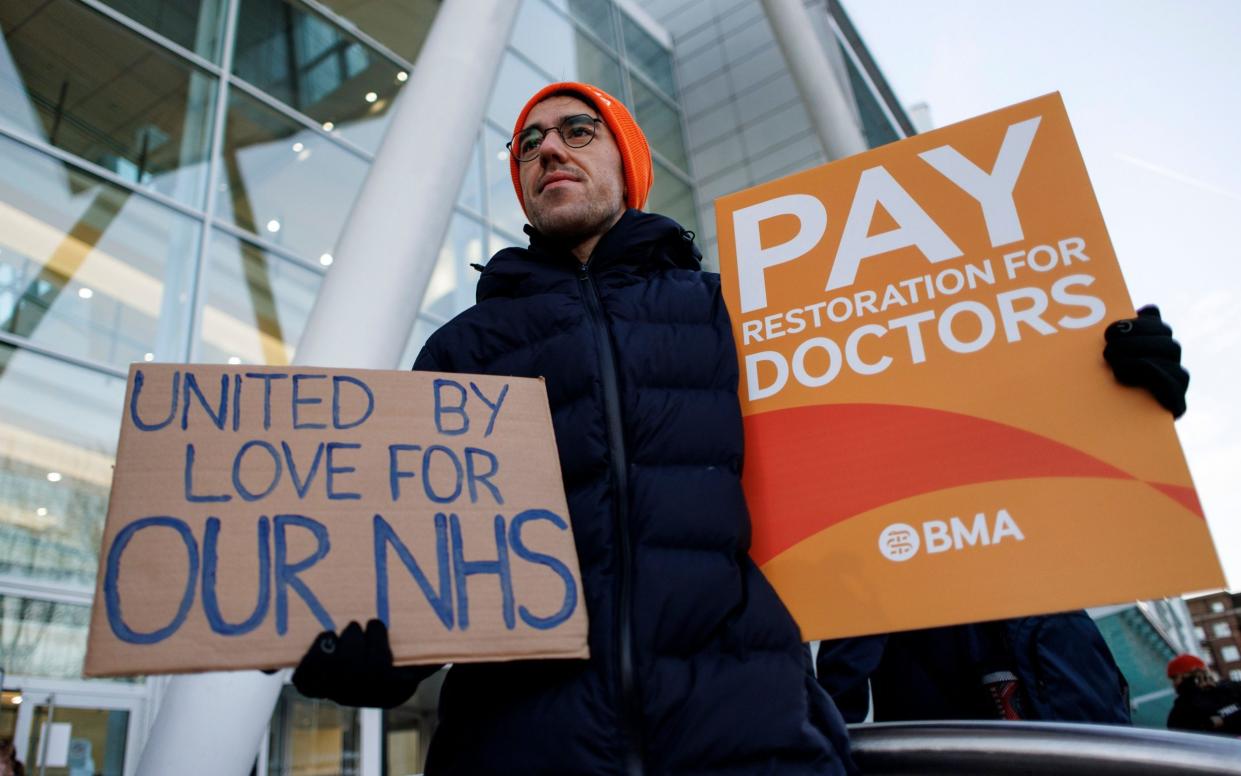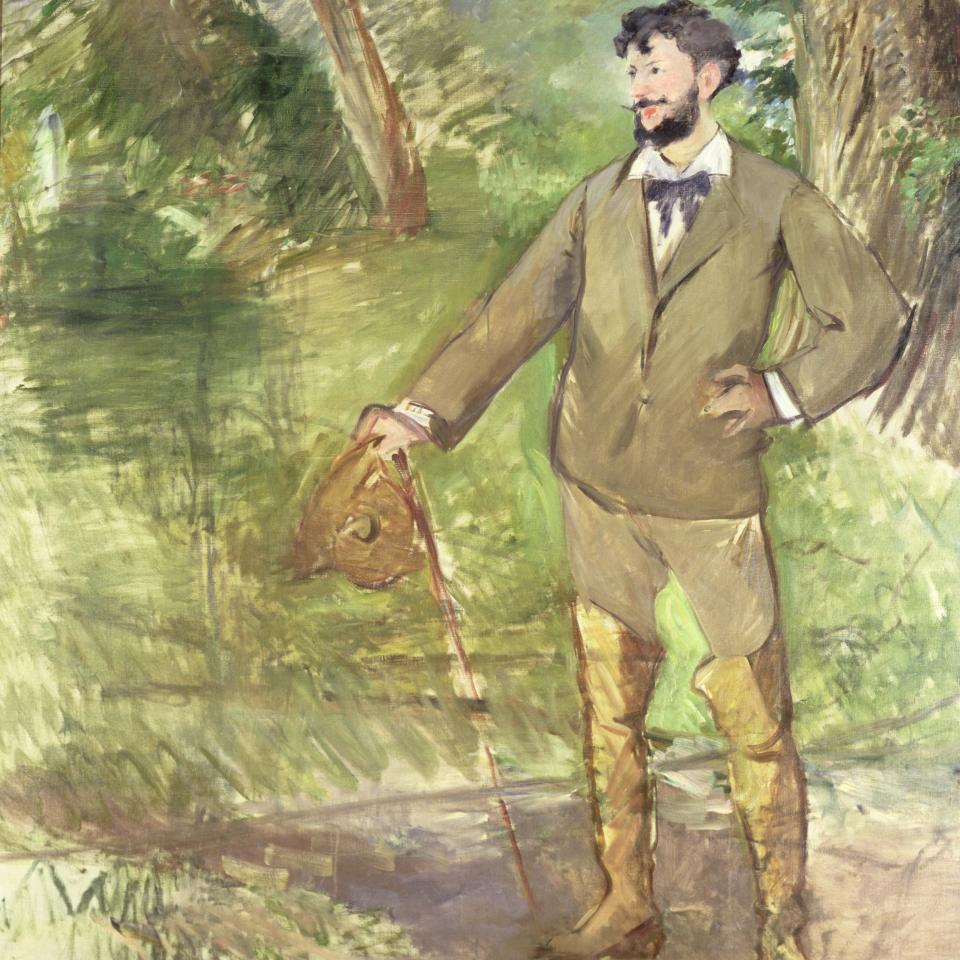Letters: Junior doctors and patients alike would benefit from increased continuity of care

SIR – Junior doctors have become seriously de-professionalised (Letters, December 29). In the 1980s, as junior surgeons, we worked very long hours, but also enjoyed the huge satisfaction of making people better. When judged competent, we diagnosed, operated on and managed the post-operative course of “our” patients, working independently but within the support structure of the consultant-led “firm”.
The opportunity for that professional satisfaction has gone. The European Working Time Directive remains a significant cause of that loss. It turned our junior doctors into shift workers, and that’s not how a profession works. There is no “ownership” of the patient’s pathway. As Emma Isworth correctly states (Letters, December 28), junior doctors are reduced to clerks. And then we wonder why they emigrate or leave medicine altogether.
Learning medicine requires long hours of hard work. If young people can’t cope with that, they should seek an alternative profession. But we have to get the buzz back into the life of our junior doctors. So, reinstate the old consultant-led firm structure; it would be good for all concerned, not least the patients, who would enjoy better continuity of care.
Patrick Loxdale FRCS
Aberystwyth, Cardiganshire
SIR – I started as a doctor 40 years ago. My income was low relative to my peers in other professions. I worked long hours but I had my own on-call room with clean sheets and a doctors’ mess with a hot meal readily available after working through the night.
Today’s doctors often have to travel significant distances after working anti-social shifts, and out-of-hours food might be a sandwich from a vending machine.
The NHS needs to put emphasis on valuing its staff, who all want to do their best for patients. The strikes are not all about money.
Dr Michael Copp
Cheltenham, Gloucestershire
SIR – It is essential that junior doctors are paid well now, or we will lose a generation of talent and potential. They will either emigrate or be tempted by very well paid jobs in the private sector, without the immense responsibility, long hours and emotional demands of medicine.
There are consultancy companies in London that specifically target newly qualified doctors, valuing the qualities of intelligence, application and integrity that six years of training demonstrate. Our country’s medical provision will be severely compromised if this is not resolved quickly to junior doctors’ satisfaction.
I have had 40 years’ experience working in the NHS as a GP, and, as my granddaughter nears the end of her medical training in London, I am in awe of what she has experienced: her training was disrupted during the Covid pandemic; the conditions at the hospital where she has excelled were very difficult; and she has already absorbed an extraordinary amount of medical information.
Medicine has advanced considerably in 40 years, as has what she is expected to know. She is a brilliant, huge-hearted, hardworking young woman with the world at her feet. Why should she be expected to work in appalling conditions?
Dr Christopher Kirby
Stockbridge, Hampshire
Clueless HMRC
SIR – After hours of trying to work out why my software would not allow me to file my VAT return, I called HMRC at 8.02am on Thursday morning. I hung on through the various recorded options until a human responded. He asked me for my VAT number and authenticated me through confirmation of my last payment.
I explained my problem and the man encouraged me to go to the online Government Gateway, which I did. On reaching my Gateway page, the man said he had no idea what I was looking at, but would encourage me to experiment. He said no one from the technical department was available to help as it was the Christmas period. But perhaps someone would be available tomorrow. He had no idea whether that would be the case.
Thursday was a working day, when the self-employed often work, and even try to pay their taxes. Newspapers are sold, interest is charged by banks – yet at HMRC there is no service.
James Pickthorn
London EC4
Motoring’s decline
SIR – I have not owned a car for four years but decided to hire one for two weeks over the Christmas period. My observations are that many roads are riddled with potholes, the standard of driving is generally much poorer, a satnav is an essential aid when navigating unfamiliar roads with constantly changing speed limits, and that I have difficulty maintaining concentration when having to drive at speeds of less than 20mph.
While owning a car has many advantages, I will be relieved to go back to my bicycle and bus pass.
Robert Taylor
Nottingham
SIR – I am sure that I speak for millions when I say that reports (December 28)of driverless cars being on British streets sooner than expected fill me with despair.
I have had a driving licence since I was a teenager. My children and grandchildren have all passed or are about to pass their driving tests. I take huge pleasure in driving safely and, where appropriate, quickly.
Unless it can be convincingly shown that a majority of the population prefers the driving of private cars to be handed over to automatic systems, I believe that those of us who take pleasure in driving ourselves may be tempted to revolt in whatever way we consider appropriate and effective.
Bill Davidson
Balderton, Nottinghamshire
Simpler snuffing
SIR – Far simpler than Charles A C Field’s method for blowing out candles (Letters, December 24) is a reverse blow with a kind of plucking sound. I was told of this years ago and it works well – with no spill of the liquid wax.
James Ruddock-Broyd
Witney, Oxfordshire
SIR – To extinguish candles, our Norwegian friends sent us a lysslukker – or “light switch”.
It is a broad, smooth-faced pair of tweezers. No smoke, no flying wax, and the wick can be straightened and made to stand tall – all in one pinch. We have found nothing better.
Stewart Siddall
Methven, Perthshire
SIR – My mother’s technique involved moistening her thumb and first finger with her tongue, then deftly pinching out the flame, which always achieved admiring looks from visitors.
Jeff Smith
Abergavenny, Monmouthshire
The many perks of stimulating daily walks

SIR – How I agree with Dominic Bliss (Features, December 26) about the value of a daily walk.
At the moment I am recovering from two hip surgeries and have not been out for eight weeks. Previously I would walk our dog for about two miles in the morning and just over a mile in the afternoon. Even though I was getting slower as time passed before the operations, I felt the benefit of being out.
Currently I’m feeling sluggish and tired and am putting on weight. I am definitely missing the stimulation of the fresh air and exercise. I can’t tell you how much I’m looking forward to walking again.
Roger Boyce
Dornoch, Sutherland
Sport of rings
SIR – You report (December 24) that pantomimes could receive protected status under the 2023 Unesco Convention for Safeguarding Intangible Cultural Heritage.
The demise of so many parish churches will inevitably lead to a decline in numbers involved in another very British tradition – the ringing of church bells.
There is a desperate need of new young recruits – with “young” covering age eight to 80. Readers should talk to their local tower captain; it provides great exercise (cheaper than the gym) and mental stimulus.
Andrew Bond
Wells, Somerset
Brutal British Airways
SIR – I am appalled at the level to which our once proud national airline, British Airways, has sunk. Its boast, “We’ll take more care of you”, has become a sad and distant memory.
We had booked an early flight to New York from Heathrow. Once boarded (and already delayed) with my disabled wife, we were informed by the captain that there would be a further delay due to another technical fault. An hour passed with announcements and more problems. After sitting on the aircraft for nearly four hours, the pilot announced that the flight was now cancelled as the fault could not be fixed.
We were to be transported back to terminal five, where BA representatives would help us onwards at the gate. Not only was there no one at the gate when we finally arrived, but we then also had to find the BA flight reservations desk unaided in another part of the terminal. After speaking to a number of representatives, we were told by a supervisor that we had been booked on a flight with another airline that evening. Having pointed out that it was quite pointless, as we had now missed our connection on the Queen Mary 2 in New York, all the supervisor would say was: “Well, we have booked you on a flight to New York”. He then walked away.
After 12 hours at Heathrow we returned home. All BA had provided was a small glass of champagne and a packet of pretzels to nourish us during the whole period. The fact it was our 50th wedding anniversary on that day and we had planned the cruise for nearly two years was clearly and painfully irrelevant to BA. Perhaps its slogan ought to read: “We’ll do the very least we can”.
Alan Walsh
Surbiton, Surrey
Oak and ice
SIR – We live near the River Dart. It gets its name from derte, the old English word for oak – as the trees covered the banks. They are only just recovering from the felling for the building of ships following losses at Nelson’s sea battles (Letters, December 18). But we are not alone.
Some years ago I was sailing in the Baltic and moored near Hellerup, Denmark. On going ashore we met Danish friends and had a happy evening at the yacht club. But one man, who did not speak English, was not too friendly. We eventually gathered why.
After so many ships had been destroyed at the Battle of Trafalgar, the Royal Navy had captured the Danish fleet in 1807. Denmark was forced to plant thousands of oaks to rebuild its navy, and the new trees are only just ready – and it was our fault.
That broke the ice and the evening flourished.
Adrian LLoyd-Edwards
Dartmouth, Devon
SIR – On the very rare occasions that Admiral Lord Collingwood came home to his Hethpool estate in Northumberland, his daily walk involved burying acorns to ensure a future supply of oak. Many of these trees are still in evidence on the banks of the College Burn.
Neville Dickinson
Morpeth, Northumberland
Letters to the Editor
We accept letters by email and post. Please include name, address, work and home telephone numbers.
ADDRESS: 111 Buckingham Palace Road, London, SW1W 0DT
EMAIL: dtletters@telegraph.co.uk
FOLLOW: Telegraph Letters on Twitter @LettersDesk
NEWSLETTER: sign up to receive Letters to the Editor here

